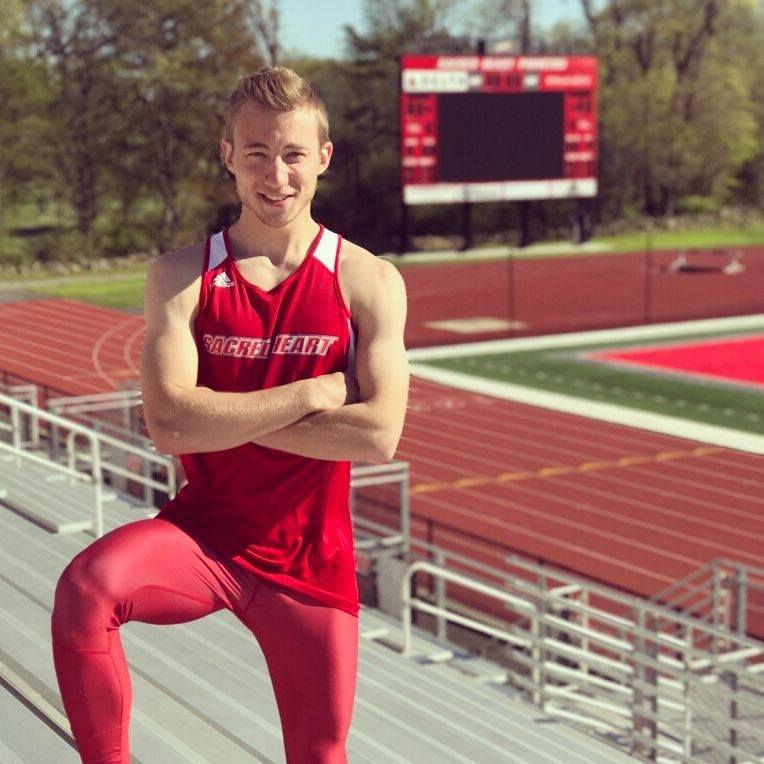
By: Evan Cleveland
You’ve always been taught to warm up before any bout of exercise. We do it before playing sports, working out, running, etc, but is it really that important? As a kid or a younger athlete, it may not seem too important but as we get older, it really matters.
In high school, this thought often crossed my mind. I thought that maybe it was just an excuse that coaches used to get their athletes to do more work, or that it was just something to prepare us mentally for practice/games, or even that the need for warming up was just an old myth!
I figured there must be some benefit to it, I just didn’t know for sure. I never warmed up before my personal practices at home and nothing bad ever seemed to happen. I would shake off these thoughts and just go through the motions to make my coaches happy. My mindset was that I should put the least amount of effort into the warm-up in order to conserve energy for what was important.
Collegiate track and field at Sacred Heart University was an absolute shock to me. Before our workouts we would start practice with a mile run, then go through a stationary stretching routine, next we performed dynamic line drills, and on top of everything we also did bounds and sprints! In total, the warm-up lasted about 50 minutes. Granted, our workouts would typically be very short with high intensity (e.g. 5 x 300m sprints with thirty seconds rest time).
Forget our practice warm-up, because the one we did before our events at meets was even longer! It was the same routine except everything was lengthened just a bit. This warm-up would last over an hour.
So were these long warm-ups necessary?
Yet again, my exercise science curriculum proved itself useful going hand in hand with my athletic career! In my exercise physiology class, we dove into the importance of warming up before working out. It blew my mind how many benefits there were. In case you were wondering, here’s a list of them:
-Higher rate of force development (explosiveness)
-Improved reaction time
-Mental preparation
-Improved blood flow
-Higher heart-rate/blood pressure
-Reduced chance of muscular injury
-Improved flexibility
Rate of force development (RFD) is defined as how quickly you can produce your maximum force. This skill is improved at the neurological level, your brain sends signals to your muscles telling them to contract. You need to wake up your brain to this action to be able to use it efficiently. Athletes especially need this ability to function at a high level to maximize performance, but it will help everyone get a better workout! It will assist in power movements mainly, such as a power clean or a box jump. Reaction time also plays a major role in this skill. Warming up prepares your mindset to exercise subconsciously. This process of mental preparation actually begins before even walking into the gym!
You may hear people say that warming up gets the blood flowing… well it’s true! This is an important aspect of exercising, as when you begin a workout your heart rate and blood pressure drives upward very quickly. Without a warm-up, that sharp spike can be very dangerous for some people.
Have you ever sprained or strained something? I have! Your muscles do in fact need to be “loosened up”. High intensity movements put a lot of stress on your muscles, that’s how they elicit stimuli for improved strength. Your body may be very stiff walking into the gym, especially if you’ve been sitting down all day. If you immediately try and endure this stress, your muscles are much more likely to be damaged. Warming up will loosen them and improve your flexibility.
These are the benefits of warming up before a workout. However, check out this study performed by the Journal of Strength and Conditioning Research, it provides evidence for long term benefits as well! After a month of a specific dynamic warm-up routine, collegiate wrestlers improved their performance results in broad jump, peak quadriceps torque, and more.
How a warm-up is structured:
Warm-ups should be specifically structured to tailor to the workout that will follow! The warm ups we use for our CrossFit workouts will target the muscles that are going to be used that day. Here’s an example of a warm-up that I would use before a running workout:
Example Workout
-6 x 400m sprints w/ 1 minute rest between
-1-mile run
-5 x 10 stadium hops
-Core circuit
Warm-up (~15 minutes)
800m jog (General warm-up/HR elevation)
Line Drills (HR elevation + RFD + Technique)
-High knees
-Butt kicks
-A skips
-B skips
-Walking lunges
-High kicks
Specific Preparation (RFD + mental prep)
-3 x 50m bounds
-3 x 50m max sprints
This warm-up is structured to cater to the demands imposed by the workout. It will adequately prepare anyone and allow them to get the greatest performance, and ultimately results.
Now here’s an example of a warm-up that is NOT structured:
Static and Dynamic stretches
-Toe touches
-Quad stretch
-Hip flexors
-Calf stretch
90% 400m run
This may look like a decent warm-up, but in reality it’s going to limit your performance and put you at a greater risk of injury.
First of all, static stretching (holding one position for 10+ seconds) has been recently found to DECREASE your RFD (rate of force development), meaning that it will subtract from your ability to create explosive movements. Think of your muscles as rubber bands, if you stretch them out too much, they won’t be as snappy. There are also no movements that are going to increase your heart rate enough before going into a very high intensity run. The 400m in this warm-up alone could injure someone! The list goes on, but in summary, a warm-up needs to be structured properly in order to prepare you for a workout.
Here’s a video from 2015 of Mike breaking down one of our CrossFit warm-ups!
Don’t cheat yourself and halfheartedly go through the motions of your warm-ups. You don’t need to carry out an hour-long routine like I did before my track events, 10-20 minutes will allow you to reap the benefits. It will lead you to a much more effective and safe workout!
About Evan:

